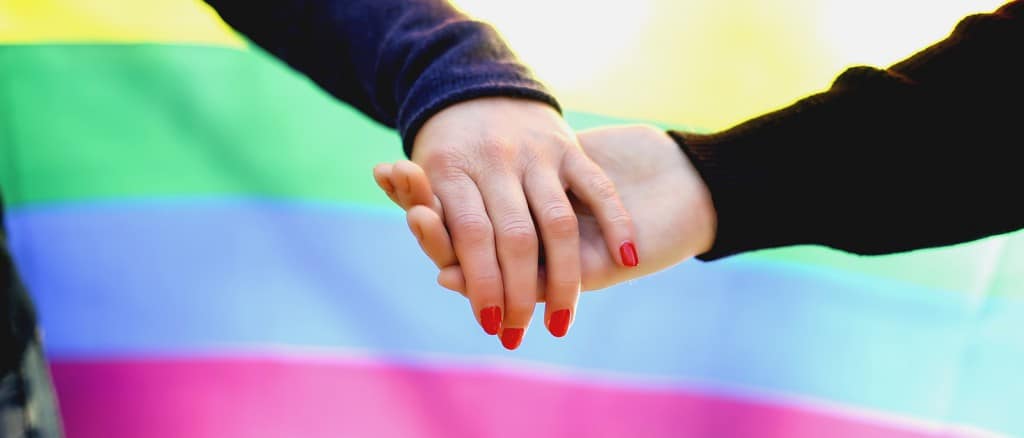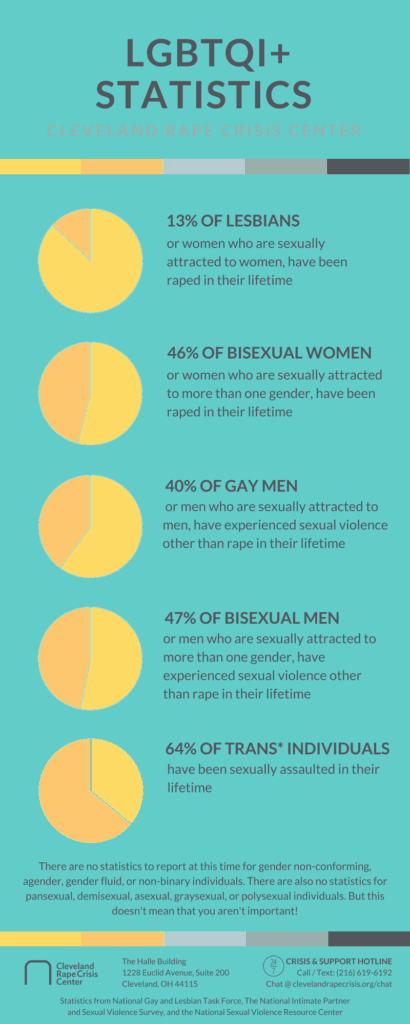
Members of the LGBTQI+ community are not immune to rape or sexual abuse. In fact, studies show that people who self-identify as LGBTQI+ are more likely to have experienced some sort of sexual trauma in their lifetime.
Dealing with trauma associated with rape or sexual abuse on top of sexual orientation and gender-based discrimination and dysphoria is difficult.
Cleveland Rape Crisis Center welcomes survivors of any gender identity and sexual orientation to access its services.

1. Experiencing rape or sexual abuse does not determine your sexual orientation or gender identity.
Your identities are not determined by your trauma. You are defined by yourself, not what you’ve been through.
2. It is okay to question your identity.
While your sexual orientation and gender identity are not determined by your trauma, many survivors question their identities afterward. Sexual orientation and gender identity are fluid and can be ever-changing.
3. Rape and sexual abuse are not crimes that are only committed by cismen against ciswomen.
Perpetrators can be any gender identity and survivors can be any gender identity. You are entitled to how you feel, regardless of who was involved.
4. You are not alone.
You will always be welcome and supported at Cleveland Rape Crisis Center. We will respect you and can help no matter your sexual orientation or gender identity. Our advocates will stand with you every step of the way through your healing process, no matter how long ago you were hurt.
How to Access Help
We’re here for you. Text or call the Crisis and Support Hotline anytime of the day or night at (216) 619-6192 or (440) 423-2020, or chat online. Call the hotline to make an appointment, or request an appointment online.
Resources
Forge
Anti-Violence Project
Pandora’s Project
